Abstract
In the presence of thiols, 5-mercuripyrimidine nucleotides are quantitatively converted to 5-thiomercuri derivatives, but these compounds are unstable and decompose at a rate dependent on the nature of the thiol. The decomposition involves three different reactions and proceeds via a symmetrical mercury derivative of the nucleotide. The end product is the unmodified nucleotide. Similar reactions occur in the presence of hydrogen sulfide. Since mercurated nucleoside triphosphates are substrates for RNA- and DNA polymerase only in the form of thiomercuri derivatives, this implies that when DNA is replicated or transcribed in vitro with a mercurated substrate, the latter is rapidly demercurated to the unmodified substrate which is incorporated as well. Hence the product of the in vitro synthesis can only be partially mercurated in any one pyrimidine. Also, formation of cross-links in the resulting polymer is possible.
Full text
PDF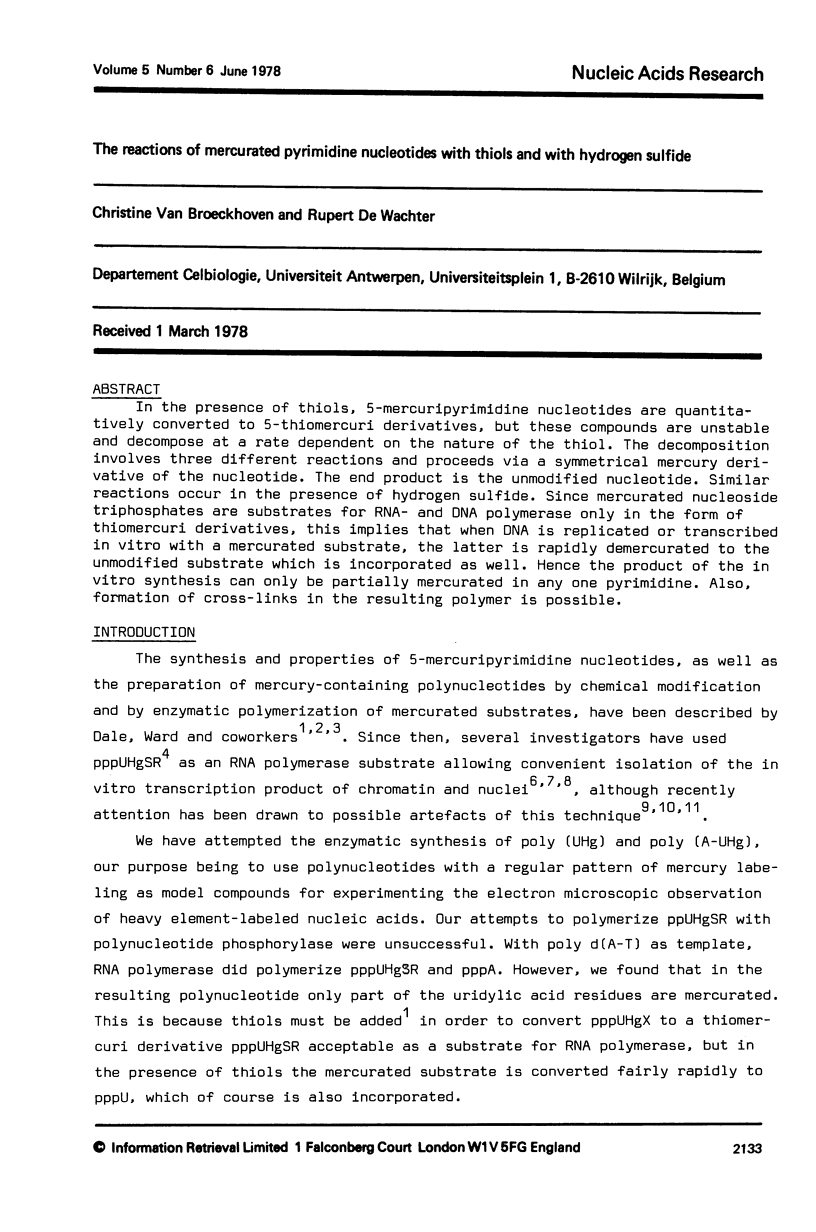
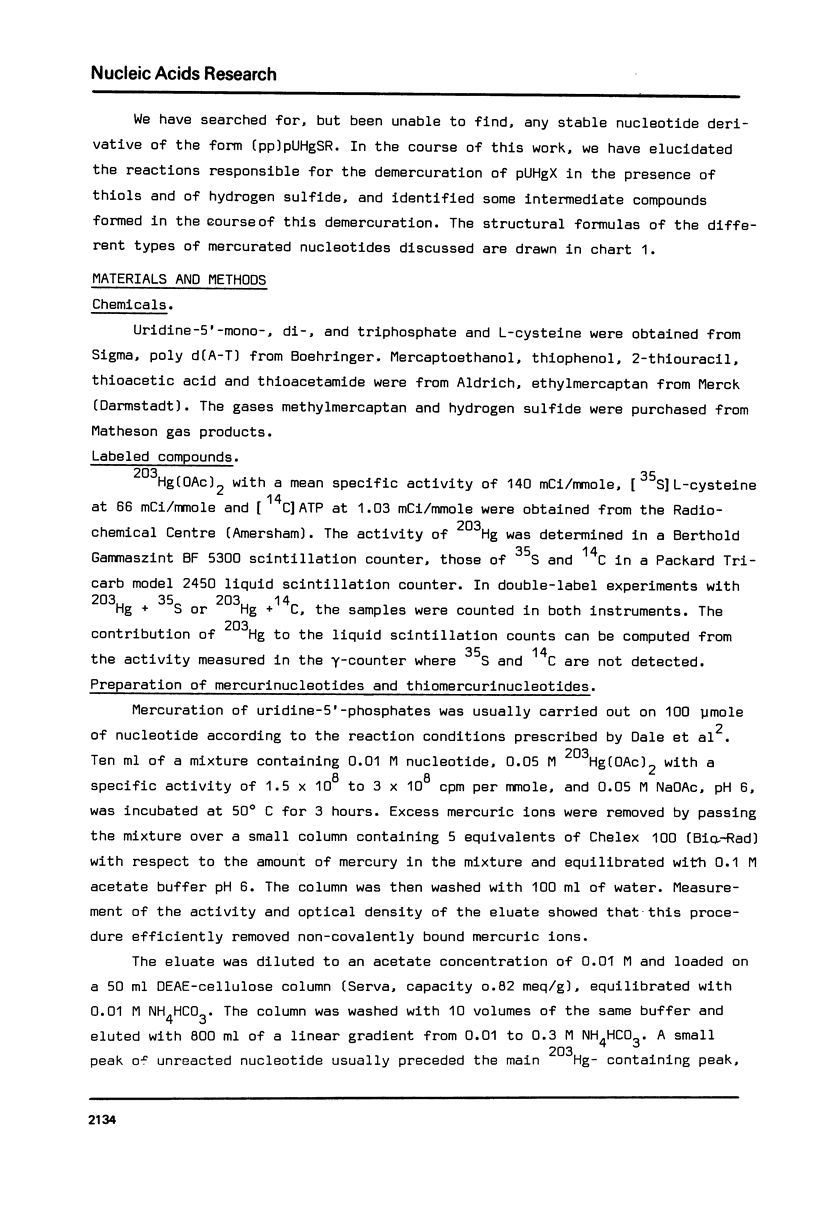
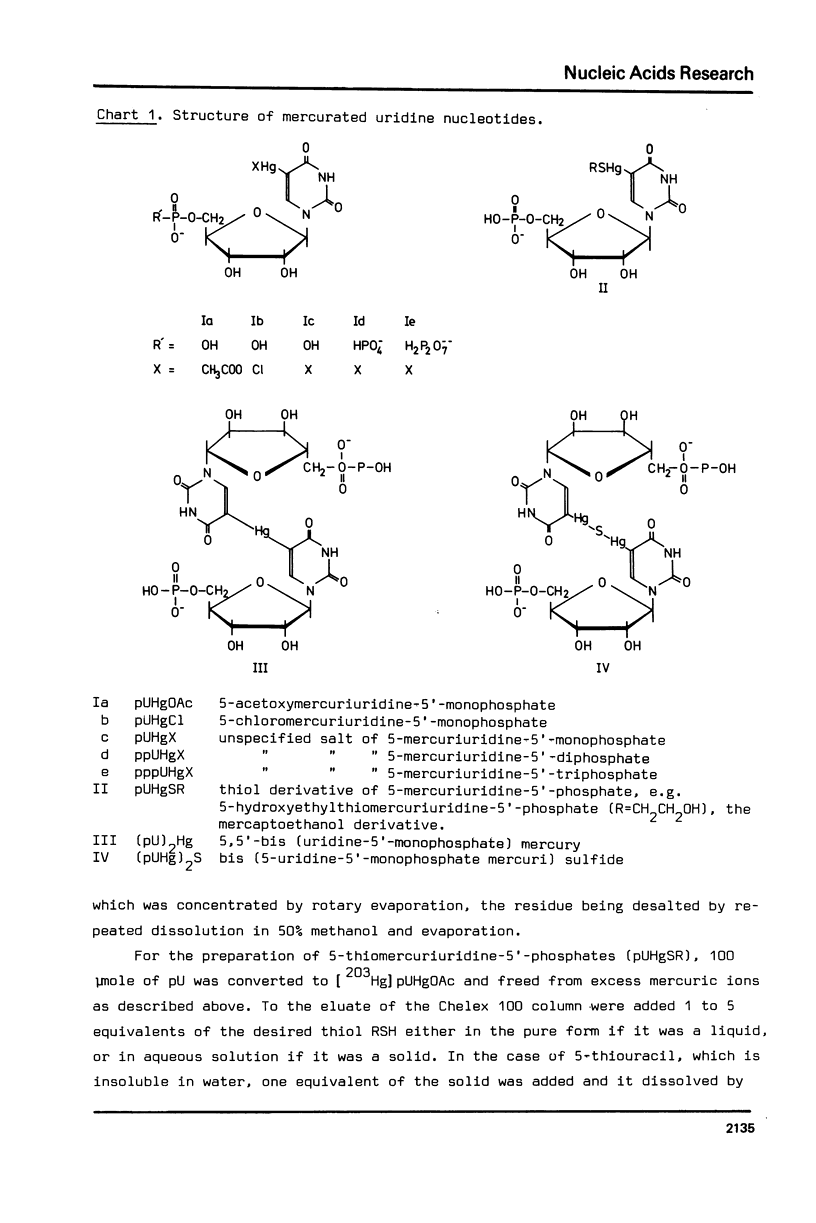
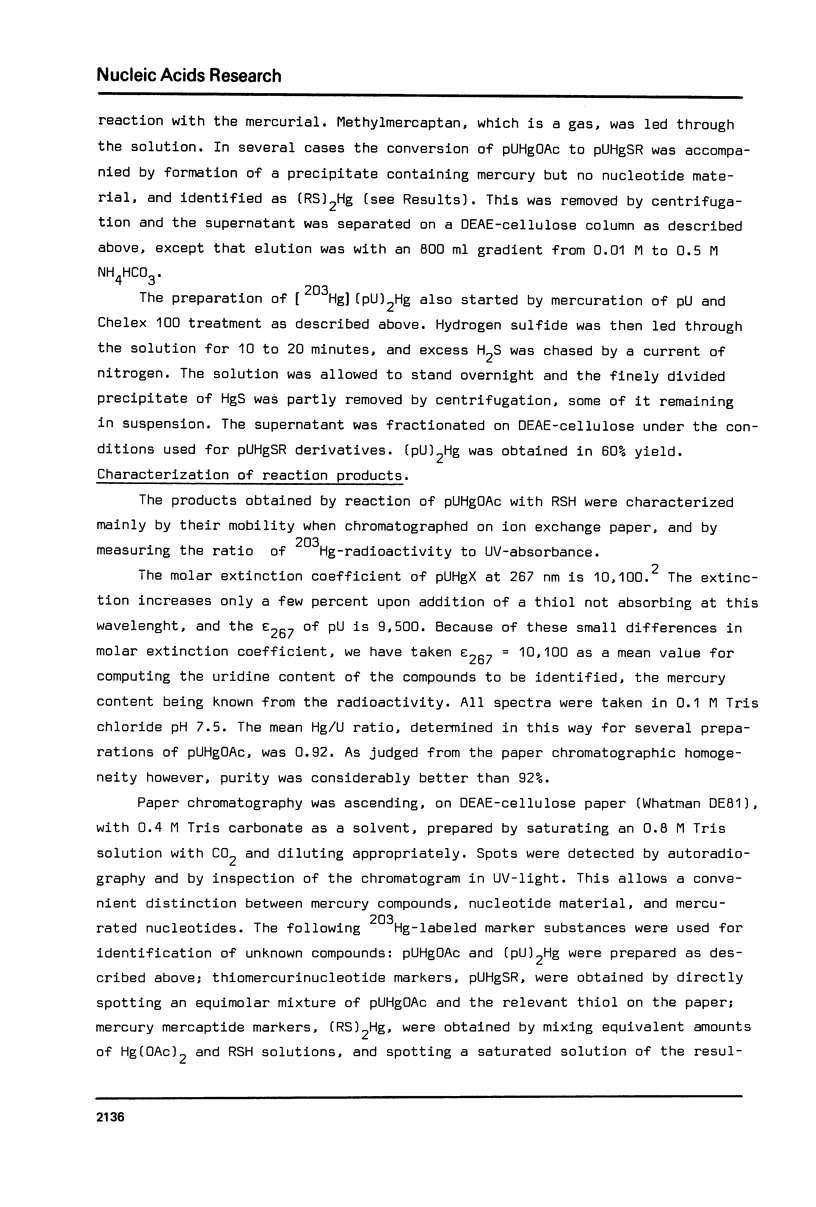
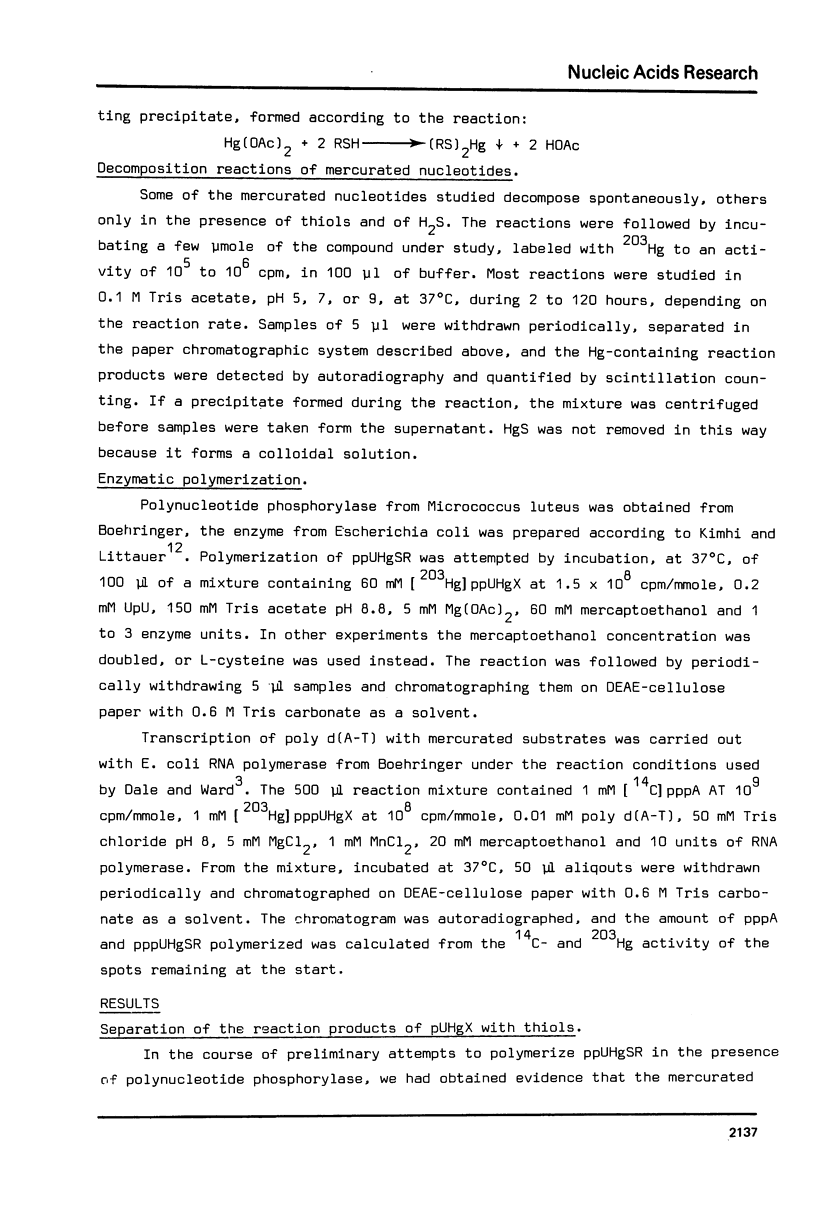
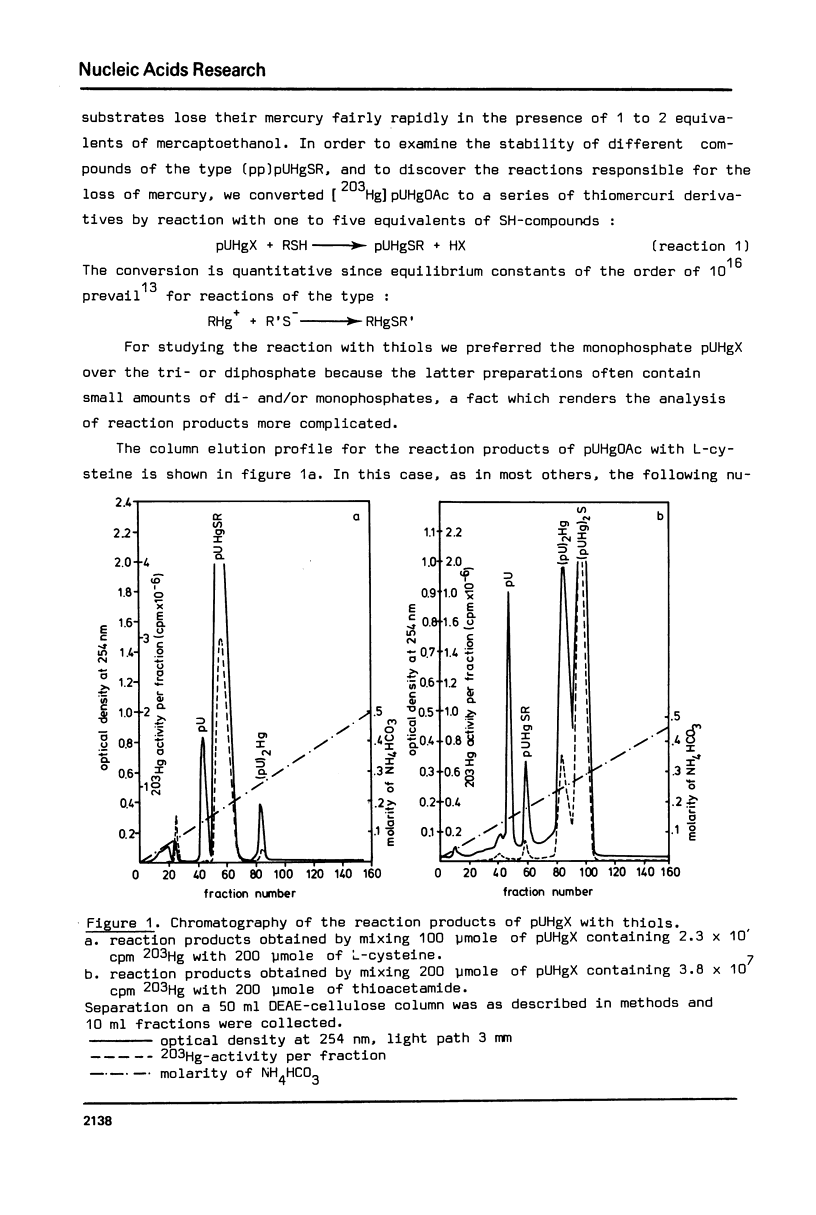
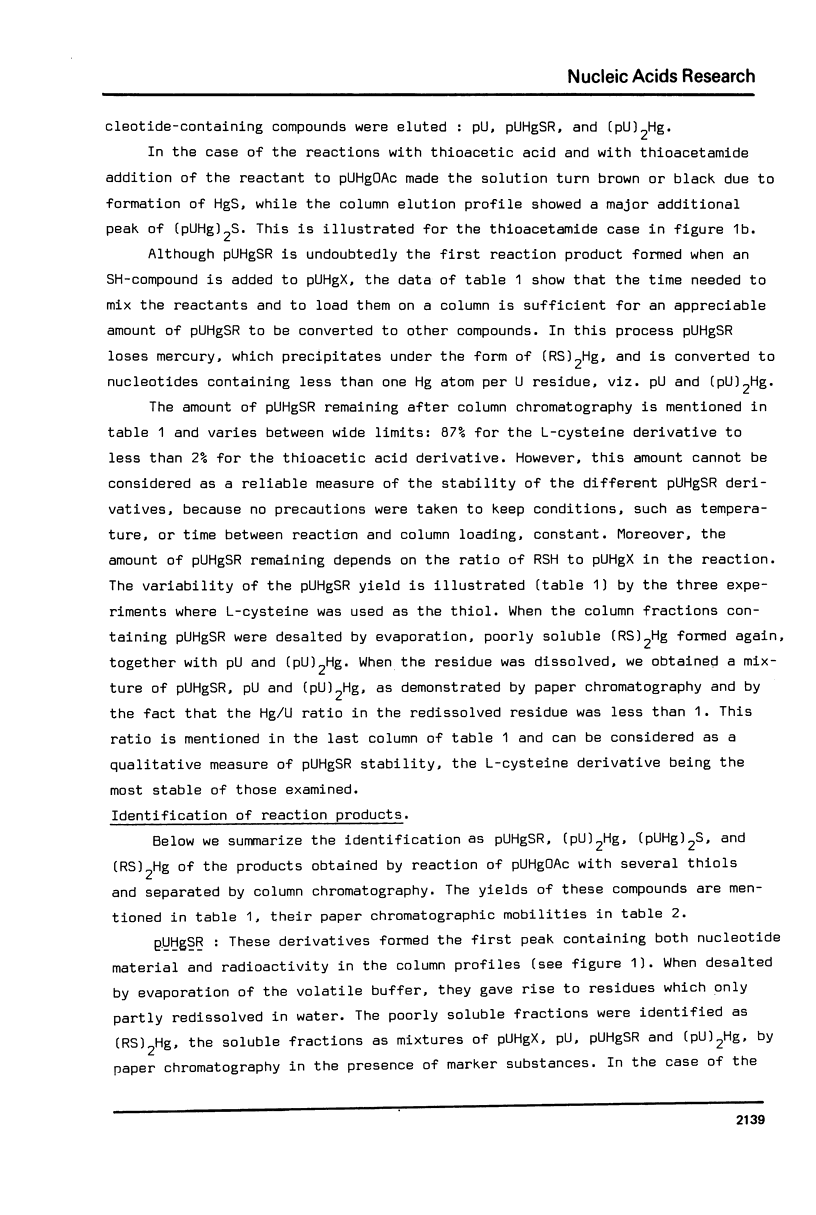
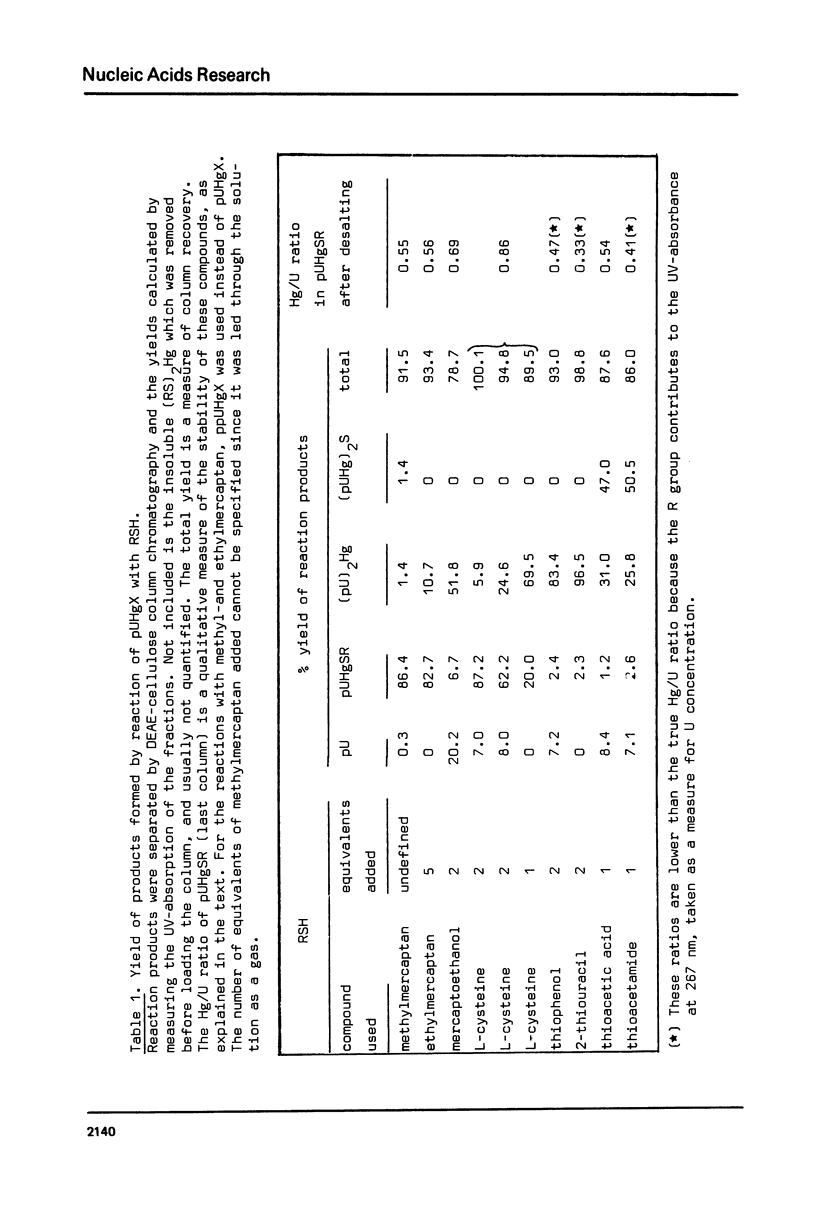
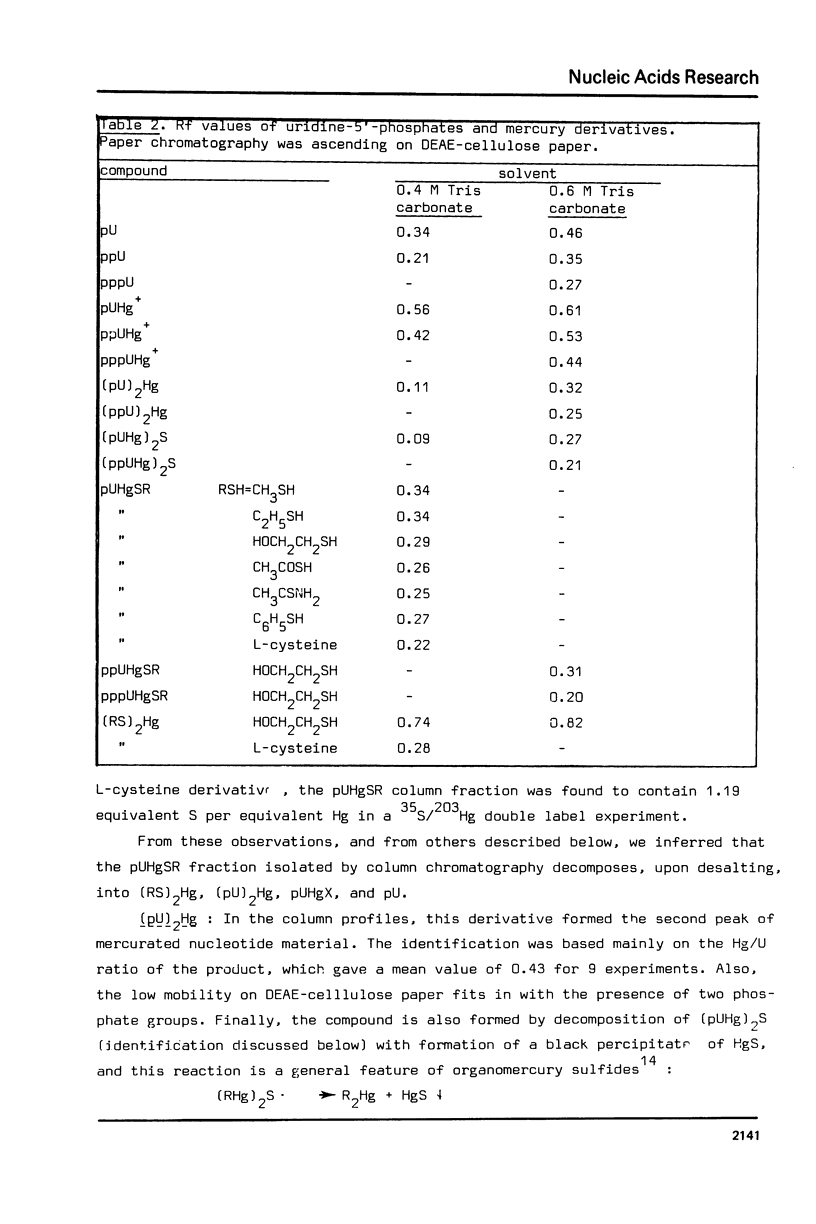
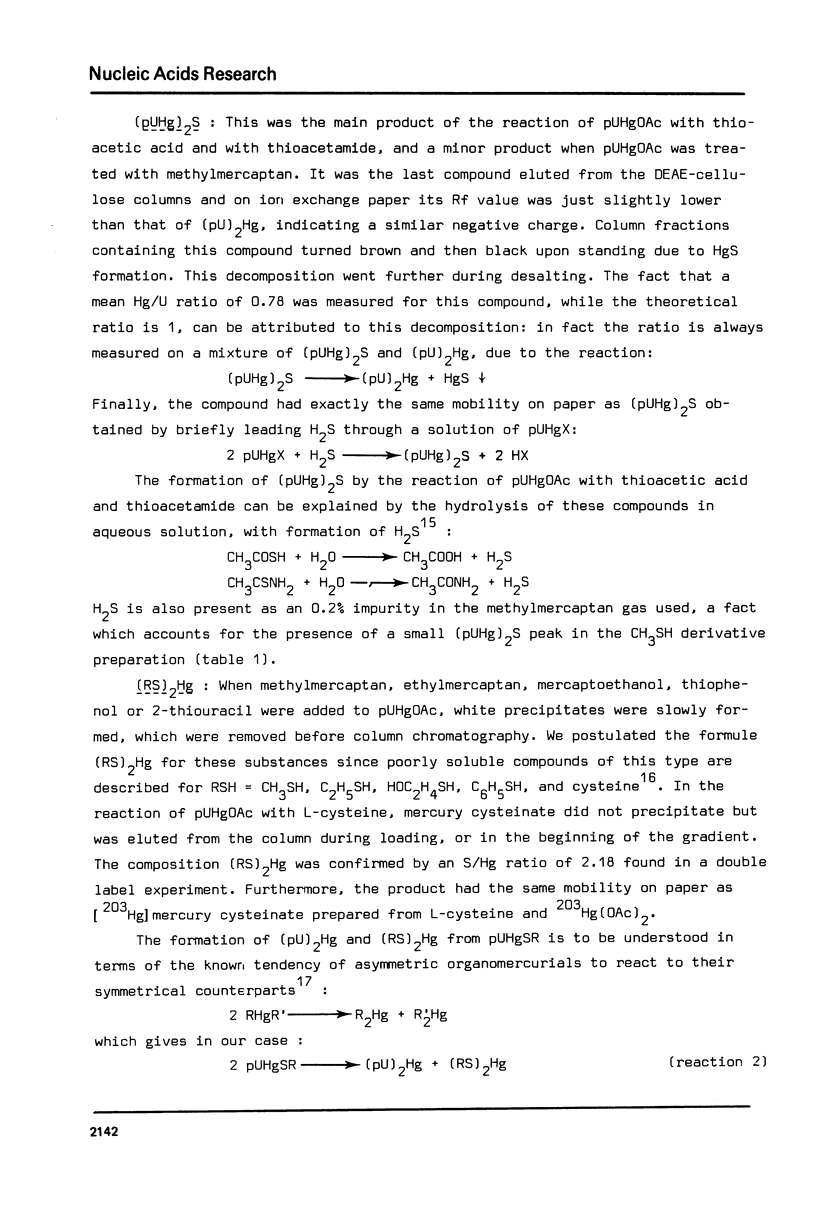
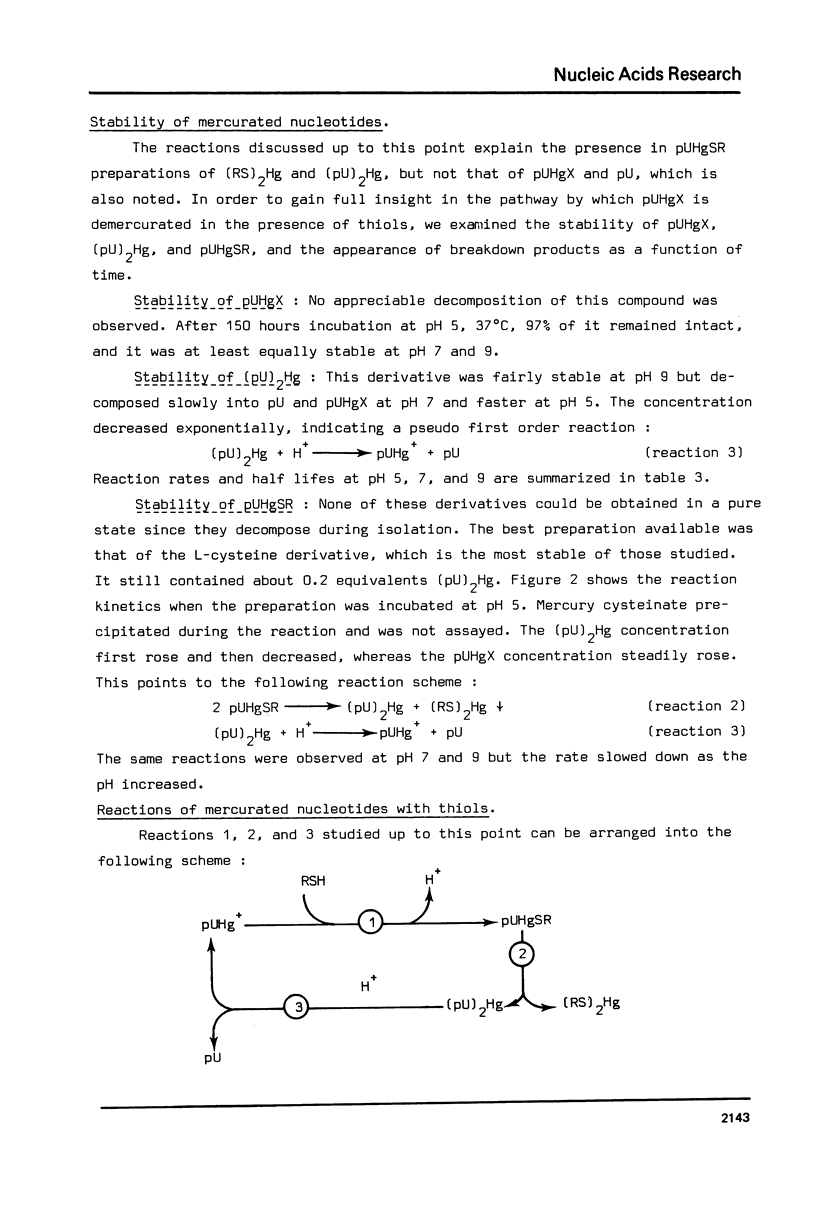
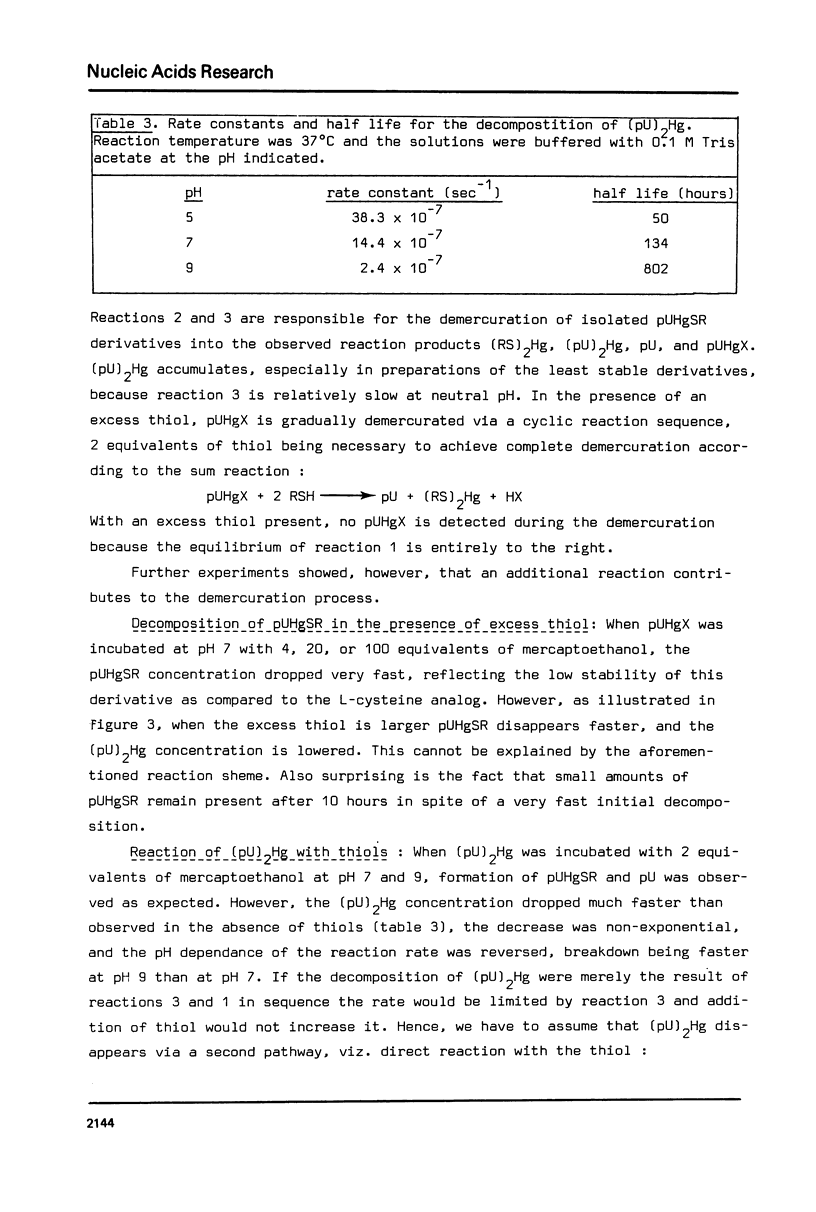
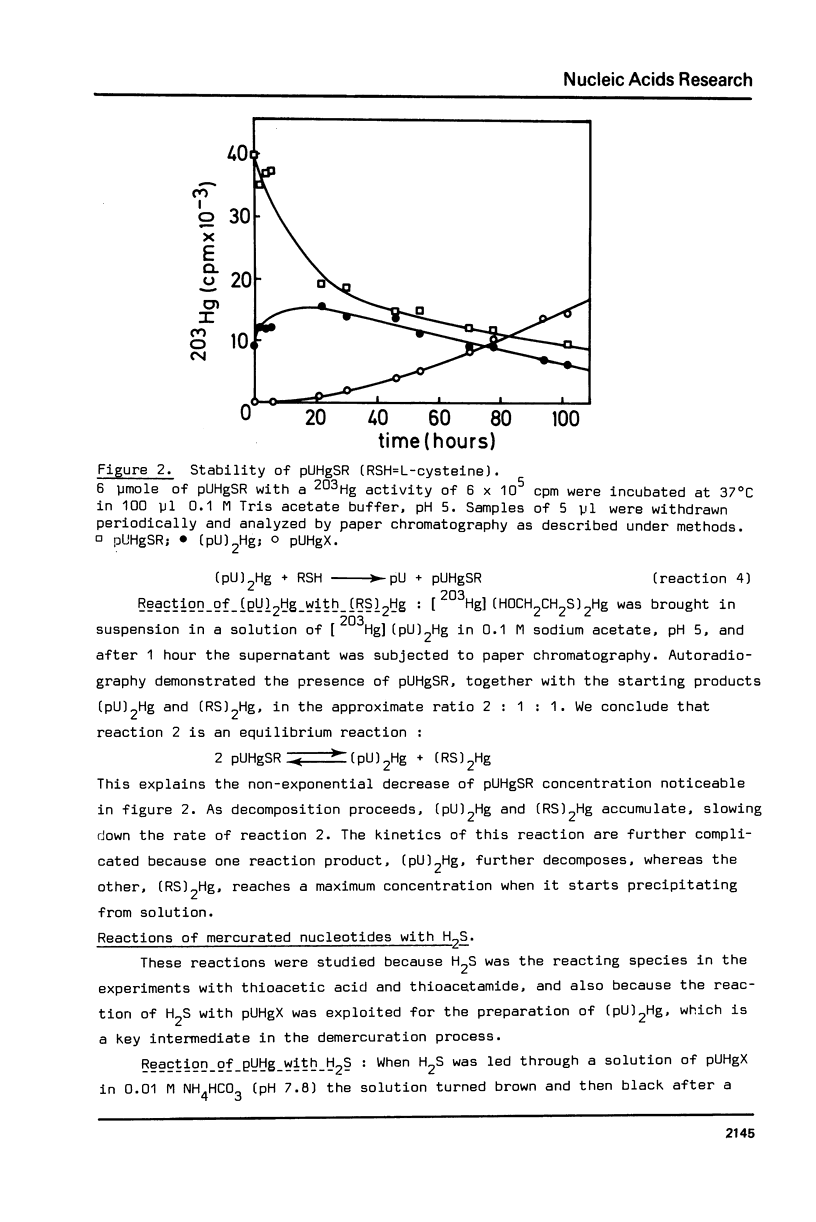
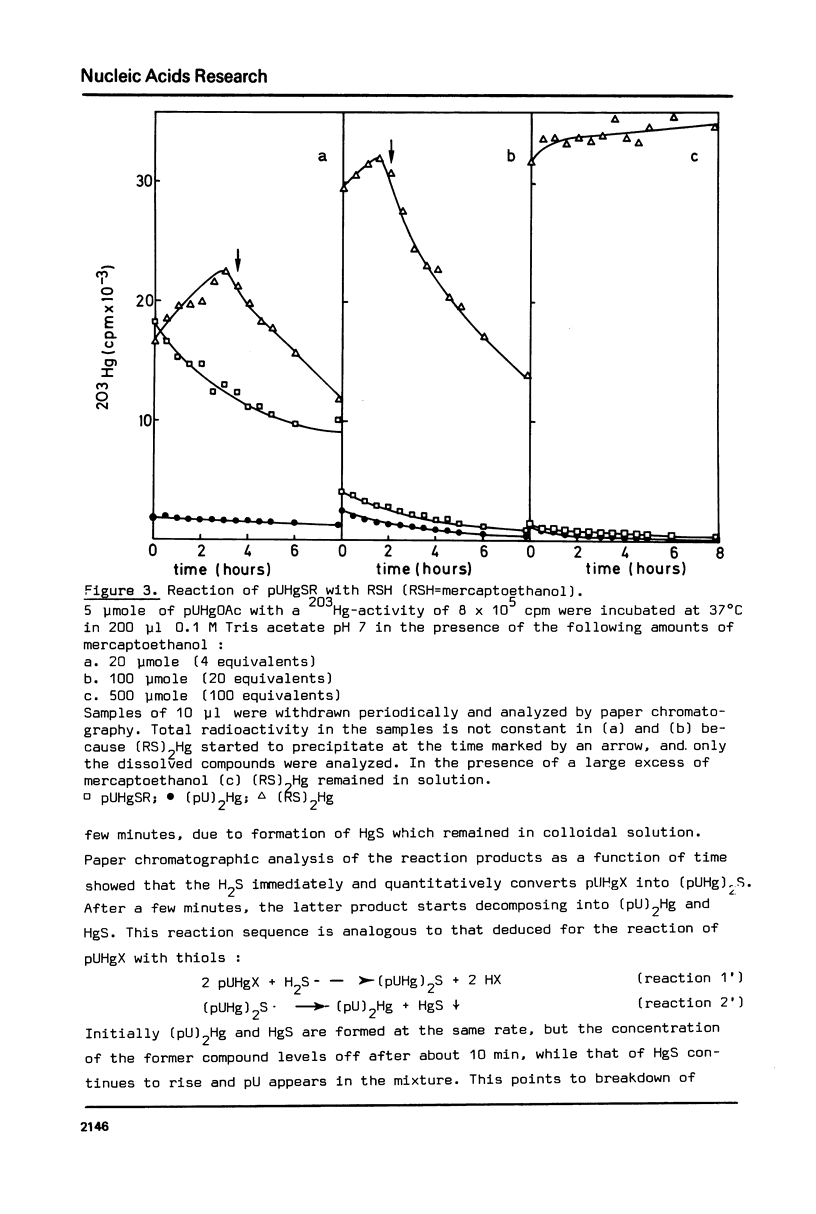
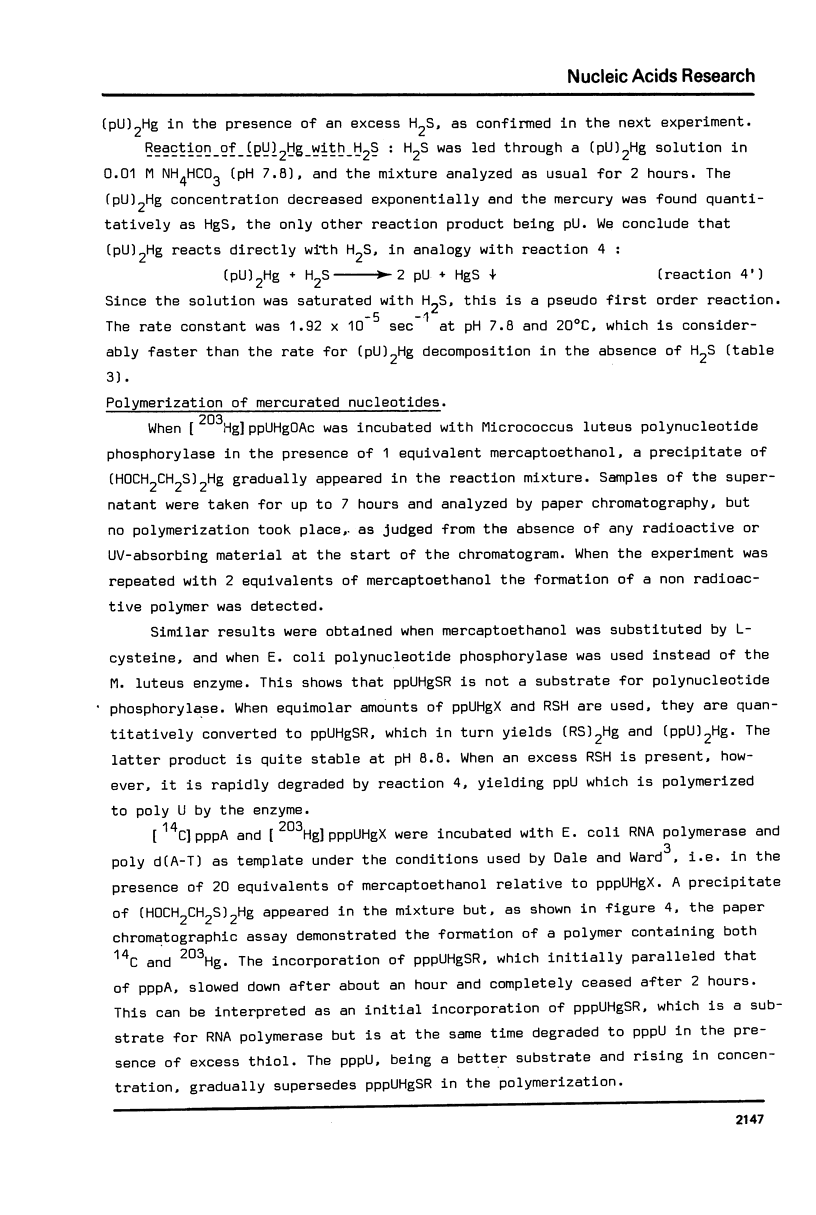
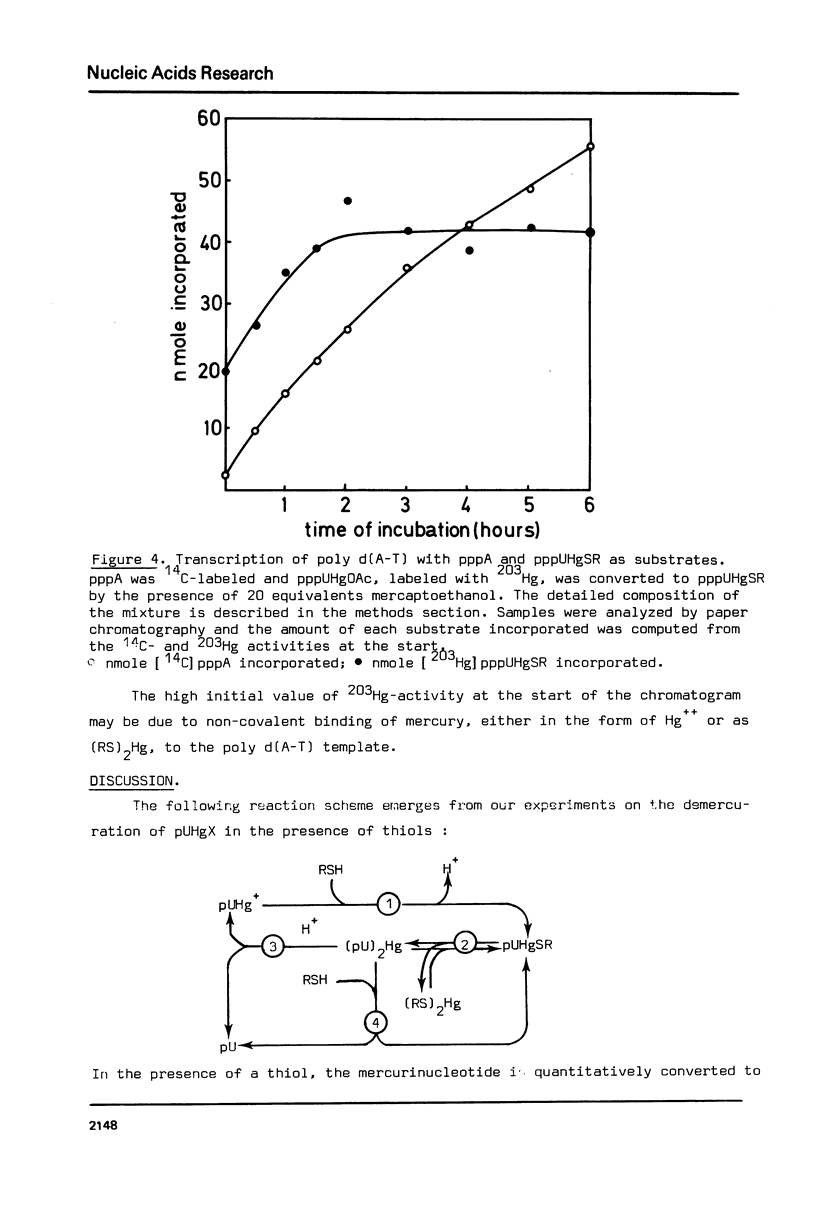
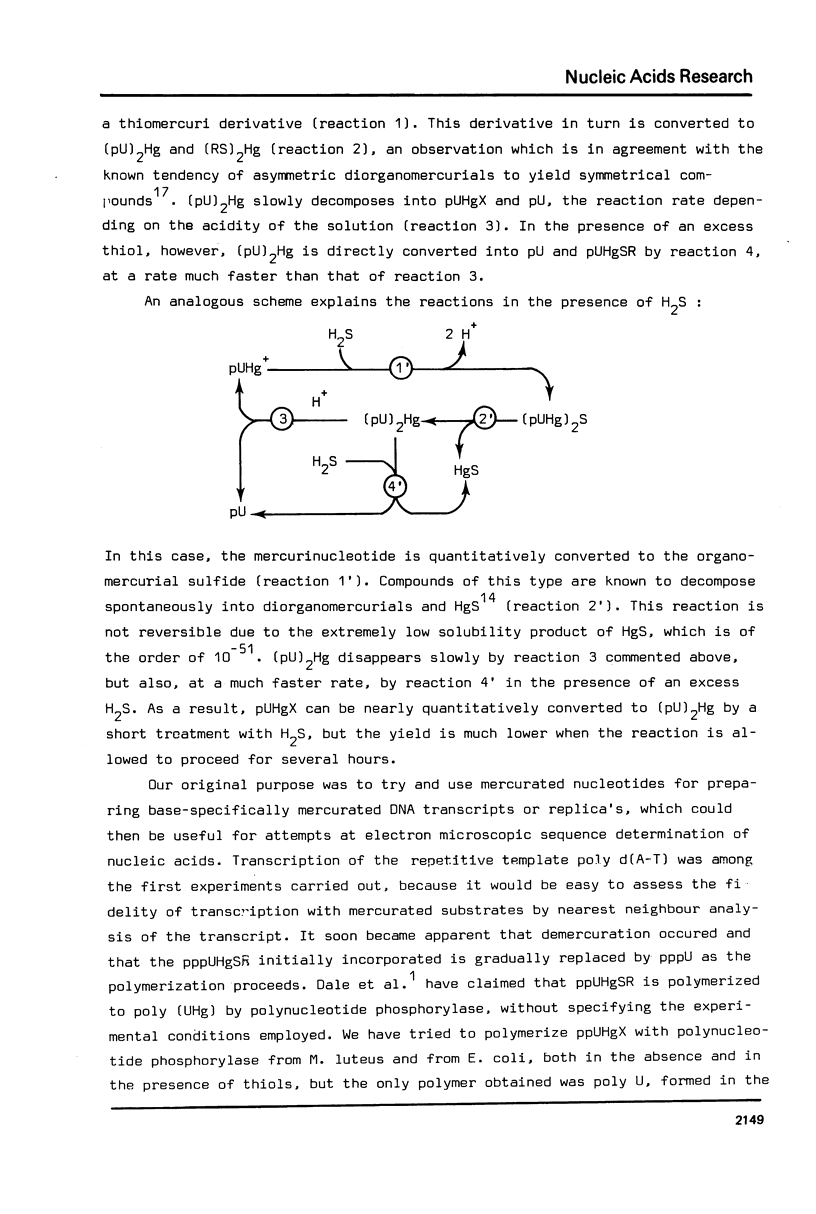
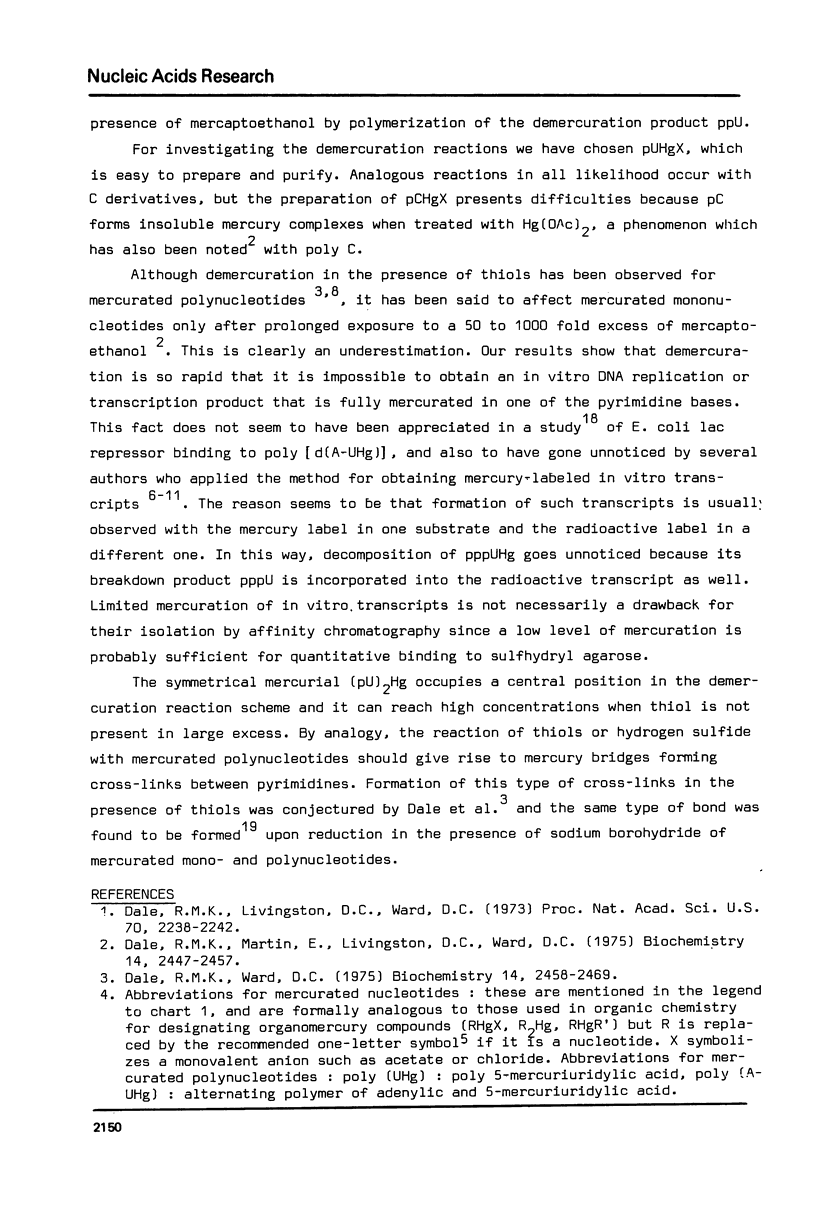
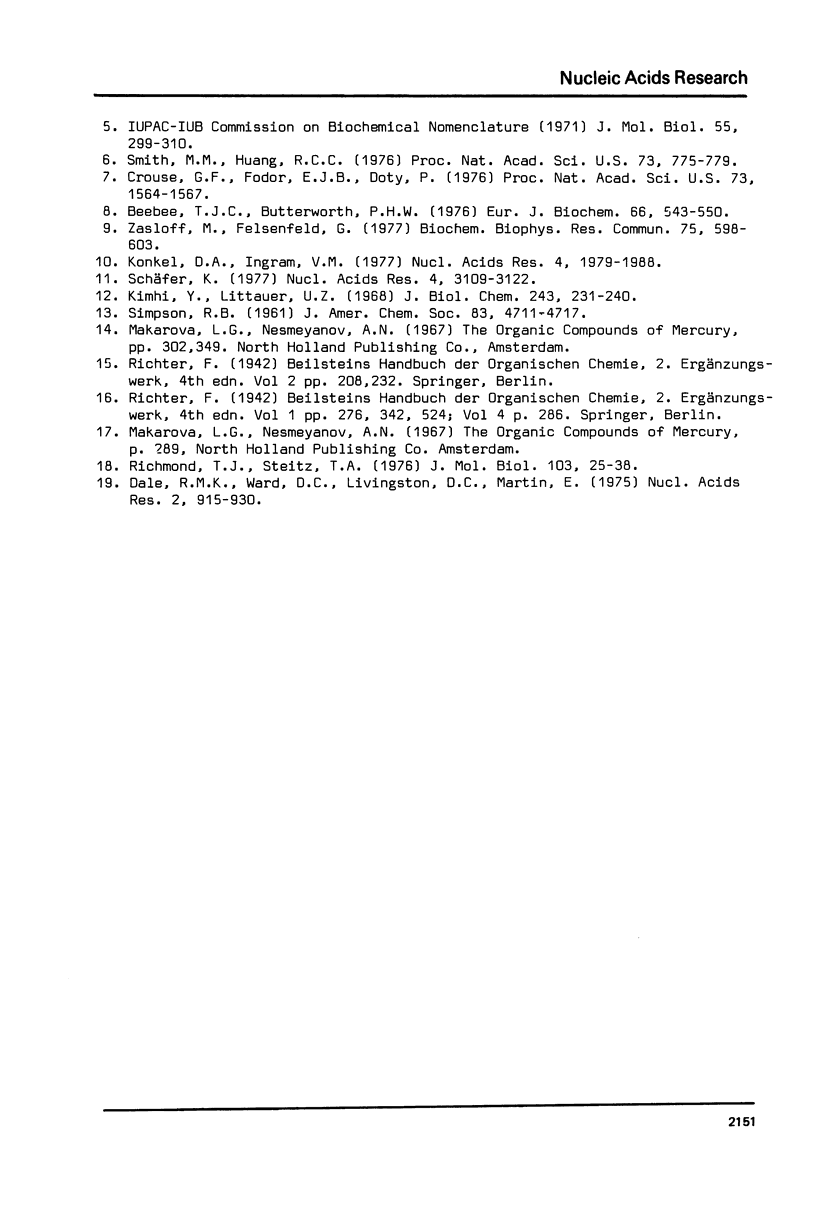
Selected References
These references are in PubMed. This may not be the complete list of references from this article.
- Beebee T. J., Butterworth P. H. The use of mercurated nucleoside triphosphate as a probe in transcription studies in vitro. Eur J Biochem. 1976 Jul 15;66(3):543–550. doi: 10.1111/j.1432-1033.1976.tb10580.x. [DOI] [PubMed] [Google Scholar]
- Crouse G. F., Fodor J. B., Doty P. In vitro transcription of chromatin in the presence of a mercurated nucleotide. Proc Natl Acad Sci U S A. 1976 May;73(5):1564–1567. doi: 10.1073/pnas.73.5.1564. [DOI] [PMC free article] [PubMed] [Google Scholar]
- Dale R. M., Livingston D. C., Ward D. C. The synthesis and enzymatic polymerization of nucleotides containing mercury: potential tools for nucleic acid sequencing and structural analysis. Proc Natl Acad Sci U S A. 1973 Aug;70(8):2238–2242. doi: 10.1073/pnas.70.8.2238. [DOI] [PMC free article] [PubMed] [Google Scholar]
- Dale R. M., Martin E., Livingston D. C., Ward D. C. Direct covalent mercuration of nucleotides and polynucleotides. Biochemistry. 1975 Jun 3;14(11):2447–2457. doi: 10.1021/bi00682a027. [DOI] [PubMed] [Google Scholar]
- Dale R. M., Ward D. C., Livingston D. C., Martin E. Conversion of covalently mercurated nucleic acids to tritiated and halogenated derivatives. Nucleic Acids Res. 1975 Jun;2(6):915–930. doi: 10.1093/nar/2.6.915. [DOI] [PMC free article] [PubMed] [Google Scholar]
- Dale R. M., Ward D. C. Mercurated polynucleotides: new probes for hybridization and selective polymer fractionation. Biochemistry. 1975 Jun 3;14(11):2458–2469. doi: 10.1021/bi00682a028. [DOI] [PubMed] [Google Scholar]
- Kimhi Y., Littauer U. Z. Purification and properties of polynucleotide phosphorylase from Escherichia coli. J Biol Chem. 1968 Jan 25;243(2):231–240. [PubMed] [Google Scholar]
- Konkel D. A., Ingram V. M. RNA aggregation during sulfhydryl-agarose chromatography of mercurated RNA. Nucleic Acids Res. 1977 Jun;4(6):1979–1988. doi: 10.1093/nar/4.6.1979. [DOI] [PMC free article] [PubMed] [Google Scholar]
- Richmond T. J., Steitz T. A. Protein-DNA interaction investigated by binding Escherichia coli lac repressor protein to poly(d(A-U-HgX)). J Mol Biol. 1976 May 5;103(1):25–38. doi: 10.1016/0022-2836(76)90050-4. [DOI] [PubMed] [Google Scholar]
- Schäfer K. P. Mercurated nucleotides: assessment of a new tool to study RNA synthesis and processing in isolated nuclei. Nucleic Acids Res. 1977 Sep;4(9):3109–3122. doi: 10.1093/nar/4.9.3109. [DOI] [PMC free article] [PubMed] [Google Scholar]
- Smith M. M., Huang R. C. Transcription in vitro of immunoglobulin kappa light chain genes in isolated mouse myeloma nuclei and chromatin. Proc Natl Acad Sci U S A. 1976 Mar;73(3):775–779. doi: 10.1073/pnas.73.3.775. [DOI] [PMC free article] [PubMed] [Google Scholar]
- Zasloff M., Felsenfeld G. Use of mercury-substituted ribonucleoside triphosphates can lead to artefacts in the analysis of in vitro chromatin transcrits. Biochem Biophys Res Commun. 1977 Apr 11;75(3):598–603. doi: 10.1016/0006-291x(77)91514-5. [DOI] [PubMed] [Google Scholar]


